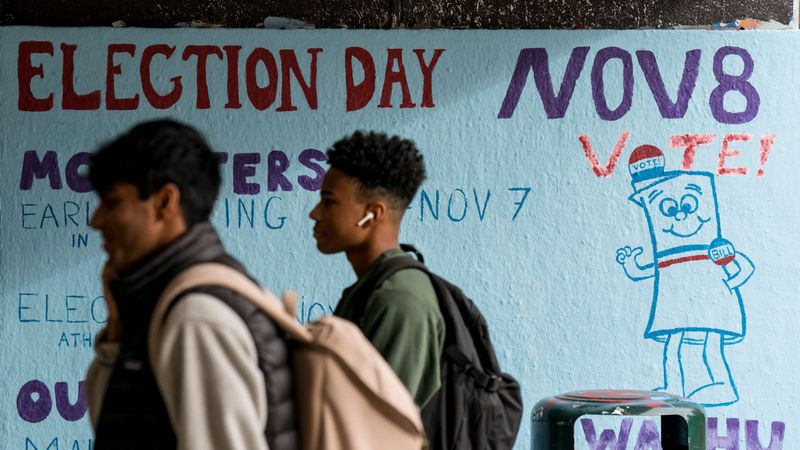Life is a series of ups and downs, and for every generation, there are certain aspects of existence that seem particularly unjust. Gen Z, having grown up in a rapidly changing world, often views certain age-old challenges as unfair. From the complexities of adulthood to the nuances of interpersonal relationships, many issues feel like insurmountable hurdles. This list delves into those very frustrations, highlighting the aspects of life that Gen Z frequently bemoans as being unfair. Yet, these are just parts of a bigger picture, a reality that every generation must navigate and accept as part of life’s journey.
1. The Reality of Paying Bills

Managing finances can be daunting. For Gen Z, the transition from a world where needs were met by caregivers to handling bills is often shocking. The reality of budgeting, understanding utility costs, and facing unexpected expenses contributes to this frustration. This stage of adulthood is a rite of passage, yet it seems particularly harsh when experiencing it firsthand. Breaking this down into manageable steps, like creating a budget or using apps, can ease the process. In time, these skills become invaluable. The key is understanding that financial responsibility is a lifelong journey.
2. Workplace Hierarchies

Navigating workplace hierarchies can feel unfair to Gen Z, who value egalitarianism. The traditional corporate ladder, where promotions often depend on tenure, seems outdated. Younger workers may feel their innovative ideas get overshadowed by seniority. However, understanding these structures can lead to growth. By demonstrating initiative and building relationships, Gen Z can thrive. It’s important to remember that every professional started at the bottom. Cultivating patience and perseverance is crucial in this environment, even if it feels like an uphill battle at times.
3. Student Loan Debt

Student loan debt looms large for many Gen Z individuals. The burden of financing education can feel almost insurmountable, especially when entering the job market. This debt can shape financial decisions for years. Yet, student loans are often a necessary tool for accessing higher education. Learning to manage repayments through budgeting or consulting financial advisors can alleviate stress. Scholarships and grants are also valuable resources. Though the debt feels unfair, it can be a stepping stone to achieving career aspirations and financial independence.
4. Digital Privacy Concerns

In the digital age, privacy can feel elusive to Gen Z. Growing up online, they are keenly aware of data collection and surveillance concerns. The sense of unfairness stems from feeling exposed to privacy breaches. Understanding privacy settings, using secure platforms, and practicing safe online habits are crucial. Although it feels unfair, taking control of one’s digital footprint is empowering. While companies collect data, individuals can still protect their information. Navigating digital privacy is a vital skill in today’s interconnected world.
5. Cost of Living

The rising cost of living is a significant concern for Gen Z. Housing, healthcare, and everyday expenses often outpace wage growth. This economic reality feels unjust to many. Yet, understanding market dynamics and seeking financial literacy can help. Exploring affordable living options or considering remote work arrangements are practical steps. Though the financial landscape is challenging, adapting to it is part of adult life. Recognizing that costs fluctuate can provide perspective. Balancing aspirations with reality is key to managing these pressures.
6. Climate Change Impact

Climate change is a pressing concern for Gen Z. The unfairness lies in inheriting environmental issues caused by previous generations. Young people feel burdened with solving a crisis they didn’t create. Yet, taking action through advocacy and sustainable practices makes a difference. Joining environmental groups and supporting green policies are ways to engage. While it feels unfair to bear the brunt of climate change, collective efforts can drive change. Understanding the power of grassroots movements helps channel frustration into positive action.
7. Rigid Educational Systems

Educational systems can feel rigid to Gen Z, who thrive on innovation. Standardized testing and traditional teaching methods often seem outdated. The frustration lies in a lack of creativity and adaptability in learning environments. However, seeking alternative educational resources and engaging in self-directed learning can enhance the experience. Participating in extracurricular activities also broadens skills. While rigid systems are challenging, they offer foundational knowledge. Embracing both traditional and modern educational opportunities can lead to a well-rounded education.
8. Interpersonal Relationship Dynamics

Navigating relationships is complex for Gen Z. Social media and digital communication add layers of complication. Misunderstandings arise from online interactions lacking nuance. The perceived unfairness stems from navigating these dynamics amidst personal growth. Building emotional intelligence and practicing empathy are key. Engaging in open dialogues and spending quality time in person can strengthen relationships. Although challenging, these experiences contribute to personal development. Understanding that relationships evolve helps manage expectations and fosters healthier connections.
9. Job Market Competition

Entering the job market can feel daunting for Gen Z. The competition is fierce, with many vying for the same positions. This sense of unfairness is heightened by high expectations and limited opportunities. Building a strong resume and networking are essential strategies. Seeking internships and developing diverse skills can enhance employability. Although the market is competitive, persistence often leads to success. Understanding that career paths are not linear helps manage stress. Embracing flexibility and resilience is crucial in this environment.
10. Political Polarization

Political polarization is a concern for many in Gen Z. The divisive nature of modern politics feels unfair, complicating civic engagement. Young people often feel caught between extremes, struggling to find common ground. Yet, participating in local politics and fostering dialogue can bridge divides. Engaging with diverse perspectives enriches understanding. While polarization is challenging, it also presents opportunities for growth. Encouraging respectful conversations and active listening are crucial. Recognizing the complexity of political landscapes helps navigate these turbulent times.
11. Mental Health Stigma

Mental health stigma feels profoundly unfair to Gen Z, who prioritize well-being. Despite advances in awareness, seeking help is still stigmatized. The frustration lies in societal perceptions that discourage open dialogue. However, advocating for mental health education and embracing vulnerability can shift perspectives. Supporting peers and sharing experiences fosters a supportive community. Although stigma exists, attitudes are gradually changing. Understanding that seeking help is a strength, not a weakness, is empowering. Promoting mental health as a priority enhances overall well-being.
12. The Pressure of Social Media

Social media can feel both fascinating and overwhelming to Gen Z. The pressure to curate a perfect image feels unfair. Constant comparison with peers contributes to anxiety. Yet, understanding the curated nature of social media can help. Setting boundaries and practicing digital detoxes are effective strategies. Engaging with content mindfully reduces overwhelm. Although social media presents challenges, it also fosters connection. Embracing authenticity and focusing on real-life interactions creates balance. Recognizing the dual nature of social media aids in managing its pressures.
13. The Reality of Aging

Aging is a universal experience that feels unfair to Gen Z, who value youth. The realization that time is finite can be unsettling. This awareness often prompts existential questions. Embracing aging as an opportunity for growth can shift perspectives. Focusing on experiences rather than age helps combat negativity. Building intergenerational relationships enriches understanding. Although aging is inevitable, it offers wisdom and resilience. Recognizing the beauty in growing older fosters acceptance. Embracing life’s stages cultivates a fulfilling journey.

Well, hello there!
My name is Jennifer. Besides being an orthodontist, I am a mother to 3 playful boys. In this motherhood journey, I can say I will never know everything. That’s why I always strive to read a lot, and that’s why I started writing about all the smithereens I came across so that you can have everything in one place! Enjoy and stay positive; you’ve got this!

